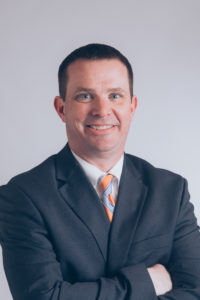
Andrew Jurs, Associate Dean and Professor of Law at Drake Law School, announces the publication of his textbook, Expert Evidence, by Carolina Academic Press. Recent research shows that expert witnesses are relied upon in as many as 86 percent of cases that go to trial. Yet in many law schools, the complexities of expert evidence are given less attention than necessary to cover the core issues in detail. Dean Jurs was motivated to provide opportunities for detailed focus on this vital area. There are few alternative texts available in the area, though it is an important topic for law students who anticipate working in any type of litigation.
Drake Law School emphasizes experiential learning, balancing theory and practice. Dean Jurs takes a similar approach in Expert Evidence. Throughout the text, he has incorporated exercises to work through real-world issues. In the teacher’s manual, he encourages course instructors to use the text creatively, such as his suggestion to invite experts into the classroom so students can hear from scientists firsthand.
What prompted your interest in expert evidence?
It originally stems from my work as a practicing attorney in Denver, Colorado, where in many of my cases, expert witnesses were at the core of the dispute. I also dealt with many new fields of science along the way. What fascinated me the most was how scientific evidence filtered through the judicial system, and how judges approached the complex questions that arose from that interaction. So, once I began in academia, my research naturally focused on expert evidence.
What will students learn from taking a course on expert evidence?
One of the best parts about an expert evidence course is the wide variety of disciplines that it can cover. The textbook is intentionally written to offer application to both criminal law and to civil law, benefiting students who seek to practice in either area of litigation. Even within those larger categories, every instructor or class can choose a different emphasis to cover different issues.
You note that there is friction between legal and scientific methods that students must consider. What do you mean by this?
Yes, the core friction between the disciplines comes from their vastly different methods of inquiry. Science seeks broad truths and welcomes new data, even to overturn earlier theories. Legal cases seek finality and generally are narrow disputes between specific parties. In learning about that underlying conflict, students begin to think about how best to present scientific evidence or to challenge it, in service of their case or client.
Expert Evidence concludes by addressing reforms to the current system. What is the main takeaway for students?
It would have been easy for me to end the text with, “It is what it is.” Instead, in the final section, I encourage students to take the next step. If we want the system to improve, then students should consider what solutions can be created to address the problems observed throughout the rest of the text. Students are therefore presented with several methods of reform and can assess whether the solution offers an improvement compared to the existing system. In my classroom discussions, students will vote on the proposals, and we can sometimes see a broad consensus that changes could be made to improve the system overall. Fostering this spirit of critical thought will serve students well in their future careers.

